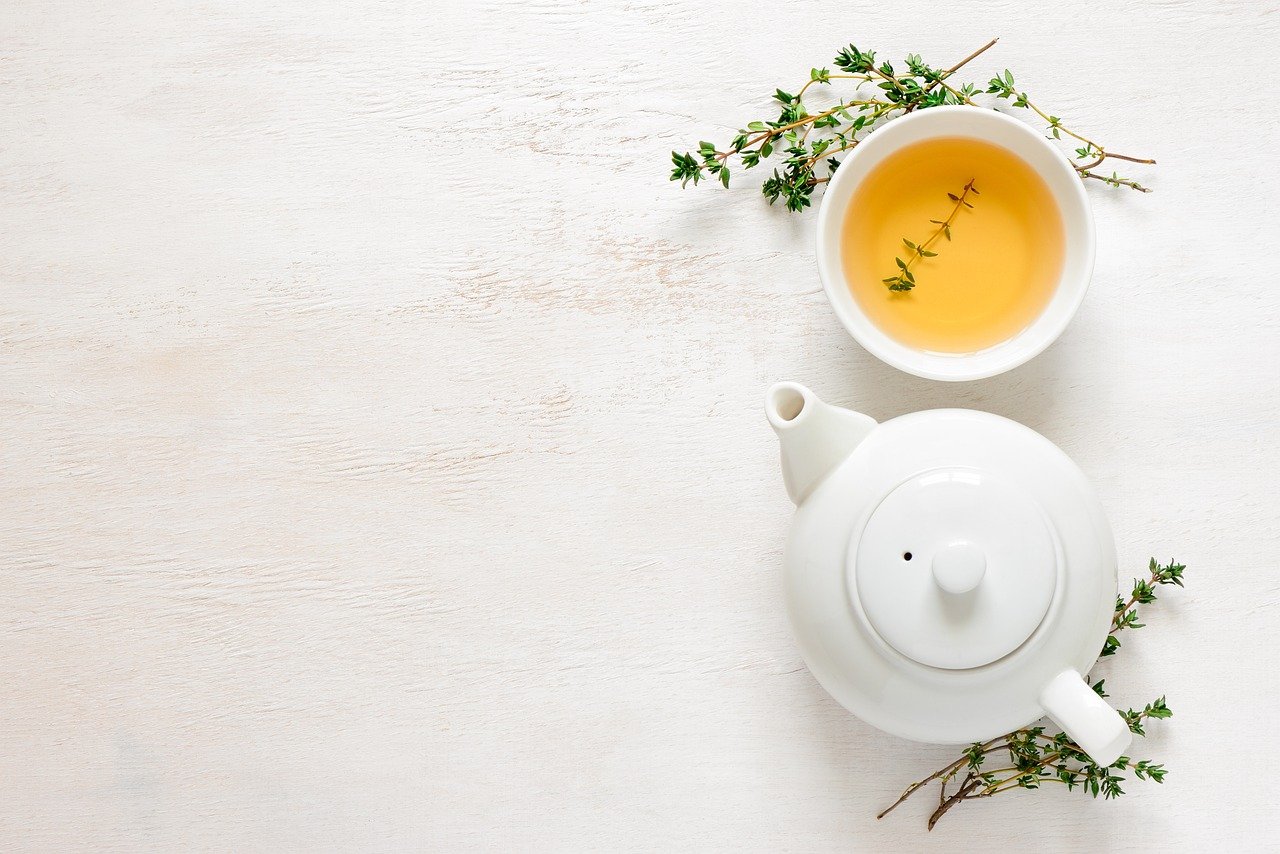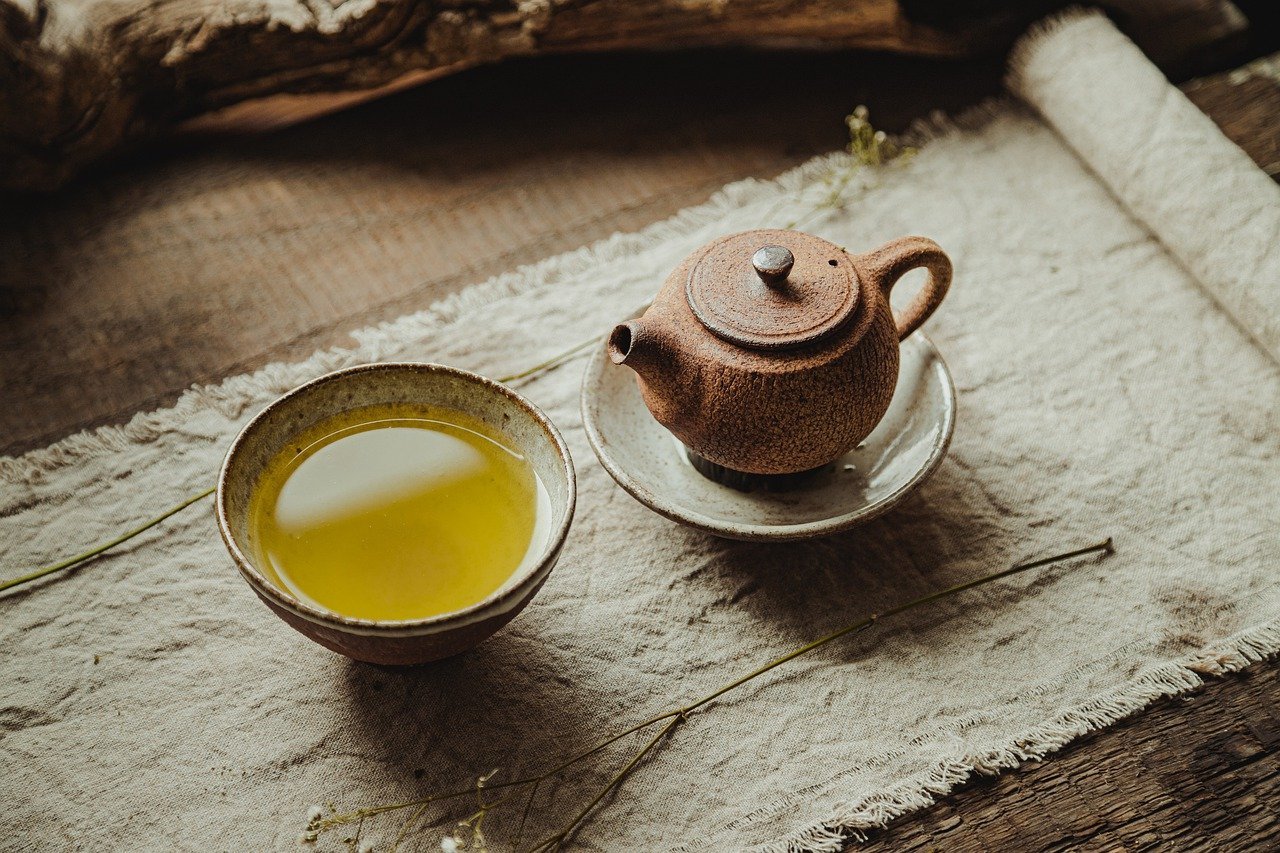Introduction:
In the world of herbal teas, one such is berberine tea, which is made from the dried roots, rhizomes or barks of plants full of berberine alkaloids that are valuable. This unique compound can be naturally acquired from different kinds of plants all over the world but most especially in those belonging to genus berberis like barberry, goldenseal, Oregon grape and tree turmeric. For years now it has been used as a traditional medicine all around the globe including ancient Chinese and Ayurveda cultures because of its ability to induce remarkable therapeutic effects.

What is Berberine tea?
Berberine tea is a delightfully wonderful drink which is prepared by steeping dried or powdered plants possessing the awesome power of berberine. This incredible bioactive agent, which can be found in abundance in the roots of the Berberis shrub as well as from many other botanical sources. When it comes to drinking this tea, you may expect a lot of health benefits that have been well-researched and are well-known.
Drinking berberine tea coincides with getting an experience that makes one feel changed. During infusion, berberine’s special characteristics are drawn from plant materials into hot water making berberine tea an easily available and comfortable method of taking this extraordinary substance regularly.
Be prepared to be amazed by the multitude of amazing things about berberine tea! Those who are enthusiastic about its effects claim that it promotes general wellness. Consequently, people across the globe who pay attention to their health have started taking up berberine tea like never before; this is because it is natural and comprehensive way to improve health. What is stopping you?
Health Benefits of Berberine Tea
As the popularity of herbal remedies continues to grow, berberine tea gained attention as a go-to option for those looking to complement their lifestyle with wellness-supporting beverages. While scientific research is ongoing, several health-promoting properties are attributed to berberine and its consumption as a tea:

Blood Sugar Regulation:
Berberine provides astonishing benefits for the regulation of blood sugar. This powerful compound improves insulin sensitivity at the cellular level, hence allowing more glucose to be absorbed and utilized by the body. Furthermore, Berberine has been shown to reduce glucose production in the liver, which decreases excessive release of sugar into the bloodstream. Another vital advantage is its influence on gut microbiota, thus helping digestion, metabolism and optimal control of blood sugar levels. This altogether substantiates Berberine’s repute as a game-changer in maintaining stable blood sugar levels.
Cholesterol Management:
Berberine is a remarkable compound that has demonstrated impressive potential in aiding cholesterol management. Extensive research has revealed fascinating insights into its cholesterol-lowering effects. By targeting key factors, berberine effectively reduces cholesterol levels. It achieves this by inhibiting an enzyme crucial for cholesterol synthesis, resulting in a decrease in the liver’s cholesterol production. Moreover, berberine facilitates the uptake of LDL cholesterol particles by liver cells, leading to their efficient removal from the bloodstream. Additionally, it influences the expression of genes responsible for cholesterol metabolism, promoting a favorable balance between HDL and LDL cholesterol levels. Notably, berberine boasts anti-inflammatory and antioxidant properties, which further contribute to its overall cardiovascular benefits. Embracing its potential could pave the way for enhanced cholesterol management and improved heart health.
Digestive Health:
Name a digestive health optimising agent and its abbreviation. Well, it is Berberine, with the capability of maintaining a healthy gut. This compound has diverse benefits for different aspects of the digestive system. If one wants to achieve this there are specific compounds that should be incorporated in everyday life. These include but are not limited to; increased motility in intestines leading to balanced and frequent bowel movements among others. Another property that comes with berberine is its antimicrobial effect which helps in protecting our intestines from unwanted bacteria while at the same time maintaining good bacteria in the intestines so as to ensure a healthy gut microbiome. Another function is ensuring that inflammation within your intestine does not cause much harm hence making us more comfortable for a better wellbeing of our gut. Berberine also helps maintain strong intestinal barriers as some research findings show, thus preventing harmful substances from leaking into circulation. Therefore consider taking berberine if you want to fully unleash the potential of your digestion!
“Sipping on berberine tea is more than just a soothing ritual; it’s a simple yet effective way to harness the myriad health benefits of this powerful plant compound, promoting overall vitality and well-being.”
Anti-Inflammatory Effects:
Berberine is a remarkable compound that shows great potential in combating inflammation. Extensive research has demonstrated its ability to effectively inhibit specific inflammatory pathways and enzymes within the body. By targeting key molecules involved in the inflammatory response, berberine actively works to reduce chronic inflammation, which is closely linked to numerous health conditions. By suppressing the production of pro-inflammatory cytokines and molecules, it exhibits impressive anti-inflammatory properties. While further studies are needed to fully comprehend the far-reaching impacts of berberine on inflammation, there is no doubt about its promising potential as a natural agent that can effectively support overall health and well-being by managing inflammation-related concerns.
Weight Management:
Berberine is an extremely promising ally in the realm of weight management. With its natural approach, it has the potential to provide significant support for those striving to achieve or maintain a healthy weight. Numerous studies have focused on the effects of berberine on metabolism and fat storage, revealing its remarkable ability to influence essential cellular pathways involved in regulating glucose and lipid metabolism – crucial factors in successful weight control.
The exciting findings suggest that it can enhance insulin sensitivity, leading to improved glucose regulation and reduced conversion and storage of excess glucose as fat. Furthermore, berberine has been found to impact the activity of specific enzymes responsible for fat metabolism, effectively promoting fat breakdown and inhibiting storage. Notably, berberine’s activation of the enzyme AMP-activated protein kinase (AMPK) is particularly intriguing, as AMPK is a key player in energy balance and metabolism.

Anti-microbial effects:
Berberine possesses exceptional potential as a potent natural antimicrobial agent, captivating the interest of the scientific community. Extensive research has revealed its remarkable ability to combat a broad range of pathogens, encompassing bacteria, fungi, and even certain parasites. By disrupting the integrity of microbial cell membranes, berberine exerts its powerful antimicrobial effects, effectively leading to cell death or impairing their ability to proliferate.
Impressively, berberine’s antimicrobial prowess extends to both gram-positive and gram-negative bacteria, making it a versatile weapon against various types of bacterial infections. In addition, its antifungal properties make it a compelling candidate for addressing conditions such as candidiasis. Furthermore, berberine displays tremendous potential in inhibiting the growth of parasitic organisms responsible for infections like giardiasis, further highlighting the breadth of its antimicrobial capabilities.
The escalating threat of antibiotic resistance has spurred the quest for alternative antimicrobial agents, and berberine’s astounding ability to target multiple pathogens positions it as a highly promising and valuable solution. However, despite the encouraging findings, further comprehensive research is necessary to fully elucidate its intricate mechanisms of action, optimize dosage regimens, and explore its vast potential for clinical applications. Rest assured, berberine is poised to revolutionize the realm of antimicrobial interventions.
“Today, berberine is gaining recognition in the modern wellness community for its ability to not only regulate blood sugar and cholesterol but also to act as a natural antimicrobial agent, making it a versatile addition to any health regimen.”
The ideal Berberine Dosage:
Berberine can be integrated well in your wellness program. The ideal dose may depend on individual factors, such as age, health status and specific conditions. Studies have shown that a typical dosage range between berberine supplementation is about 500 to 1500 milligrams per day taken at different intervals of time. For optimal results, start with a lower dose and gradually increase it while taking note of your body’s reaction. It is recommended you take berberine with meals to avert any chances of experiencing stomach discomfort. Nonetheless, before commencing berberine supplementation, it is important to consult with a healthcare professional especially if there are pre-existing medical issues or when on any medications including during pregnancy or breastfeeding periods. This will help get directions that are personalized regarding the right dosage according to individual needs and enjoy professional monitoring for safety as well as effective use of berberine.
Berberine Side-Effects:
Berberine is generally considered safe for short-term use when taken orally in appropriate doses. However, like any supplement or compound, berberine may have potential side effects, especially at higher doses or with prolonged use. Some common side effects that have been reported include:
- Gastrointestinal Distress: Berberine can sometimes cause digestive discomfort, such as constipation, diarrhea, flatulence, and stomach cramps. These effects are often mild and may subside as the body adjusts.
- Low Blood Pressure: Berberine has been associated with a potential drop in blood pressure, which could be of concern for individuals who already have low blood pressure or are taking medication to manage blood pressure.
- Interaction with Medications: Berberine may interact with certain medications, particularly those metabolized by the liver. It could affect how the body processes drugs, potentially leading to altered drug levels and effectiveness.
- Allergic Reactions: Some individuals may experience allergic reactions to berberine, resulting in symptoms such as skin rashes, itching, and swelling.
- Potential Impact on Blood Sugar: While berberine is being studied for its potential to help regulate blood sugar, individuals with diabetes or those taking medications to control blood sugar should use caution and consult their healthcare provider before using berberine supplements.
- Pregnancy and Breastfeeding: Berberine is not recommended for use during pregnancy or breastfeeding due to its potential effects on hormones and the lack of sufficient safety data.
How to make Berberine Tea:
To prepare a cup of nourishing Berberine tea, you have a couple of options. One traditional method involves using dried or powdered berberine-containing plants like the roots of the Berberis shrub or other botanical sources. Alternatively, you can conveniently create a cup of berberine tea using a berberine supplement capsule. Our comprehensive berberine supplement review is designed to assist you in selecting the ideal brand for your needs. The leading contender from our berberine review is exceptionally well-suited for creating a delightful and invigorating berberine tea. Check ‘The Best Berberine Supplement: A Comparison’

A step-by-step guide for both methods of tea making:
Using Dried or Powdered Berberine:
- Measure the Berberine: Start by measuring around 1 teaspoon of dried berberine roots or powdered berberine. This will be enough for a single cup of tea.
- Boil the Water: Take a kettle or pot and fill it with clean, fresh water. Bring the water to a gentle boil.
- Place Berberine in Teapot: Put the measured berberine into a teapot or a tea infuser. This will allow the berberine to infuse into the water.
- Pour Boiling Water: Slowly pour the boiling water over the berberine in the teapot or tea infuser.
- Steep the Tea: Allow the berberine to steep in the hot water for about 5-10 minutes, depending on your taste preference and desired strength.
- Strain and Serve: After steeping, carefully strain the berberine tea through a fine mesh strainer into your cup. This will ensure that any solid particles are filtered out, leaving you with a smooth liquid.
- Enhance and Enjoy: You can enhance the flavor of your berberine tea by adding honey or a splash of lemon juice if desired. Sip slowly and enjoy the potential benefits of this soothing herbal infusion.
Using Berberine Supplement Capsule:
- Open the Capsule: Take a berberine supplement capsule and carefully open it to access the powdered contents.
- Prepare Warm Water: Heat a cup of clean water until it’s warm, not boiling.
- Add Berberine Powder: Empty the berberine powder from the capsule into the cup of warm water.
- Stir Well: Use a spoon to stir the berberine powder thoroughly in the water until it’s well mixed.
- Sip and Savor: Your berberine tea is now ready to be enjoyed. Take small sips and appreciate the potential benefits of this herbal concoction.
Whether you choose the traditional method with dried berberine or the convenient approach using a berberine supplement capsule, remember that berberine tea has a slightly bitter taste. You can adjust the flavor by adding a touch of sweetness with honey or a splash of citrus.
Manuka Honey as Turbo ingredient:

Achieve unparalleled potential in your Berberine tea’s healing properties by incorporating the extraordinary power of Manuka honey. Amongst the diverse range of honey varieties, none can rival the prestigious status held by Manuka honey. Bursting with an abundance of health-enhancing compounds, it takes center stage with its remarkable levels of methylglyoxal (MGO), bestowing it with formidable antimicrobial and antibacterial properties. This powerhouse ally takes your immune system to new heights, providing nourishment to your body while simultaneously tantalizing your taste buds and invigorating your overall well-being. Remember to add Manuka honey after the tea has slightly cooled down to ensure its unique properties remain intact. Explore our comprehensive guide, “The Best Manuka Honey Brands” to discover the finest options available for your specific needs. Furthermore, gain insights into the factors contributing to the higher price tag of this golden elixir in our enlightening article, “Why Is Manuka Honey So Expensive?” Get ready to experience the extraordinary benefits that only Manuka honey can provide.
Conclusion:
Berberine tea offers a delightful way to tap into the potential health benefits of this remarkable compound. From blood sugar regulation to digestive health and beyond, berberine’s versatile effects make it a valuable addition to your wellness journey. Whether you opt for traditional dried plants or the convenience of supplement capsules, berberine tea invites you to embrace the goodness of nature and take a step toward a healthier and more vibrant life. So, why not indulge in the wonders of berberine tea and embark on a path to holistic well-being?
Sources:
https://www.ncbi.nlm.nih.gov/pmc/articles/PMC8874997/
https://www.ncbi.nlm.nih.gov/pmc/articles/PMC8107691/
https://dmsjournal.biomedcentral.com/articles/10.1186/s13098-022-00888-9
https://cdnsciencepub.com/doi/10.1139/bcb-2014-0107



[…] contributing to the overarching orchestration of enhanced cardiovascular health. In our Berberine Tea Guide, you can read everything you need to know about Berberine, how to make Berberine Tea, and reap all […]